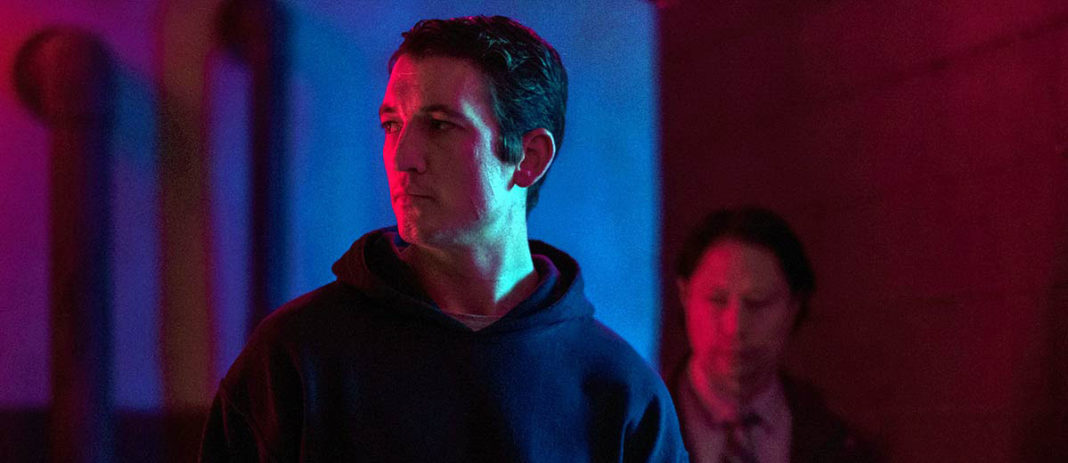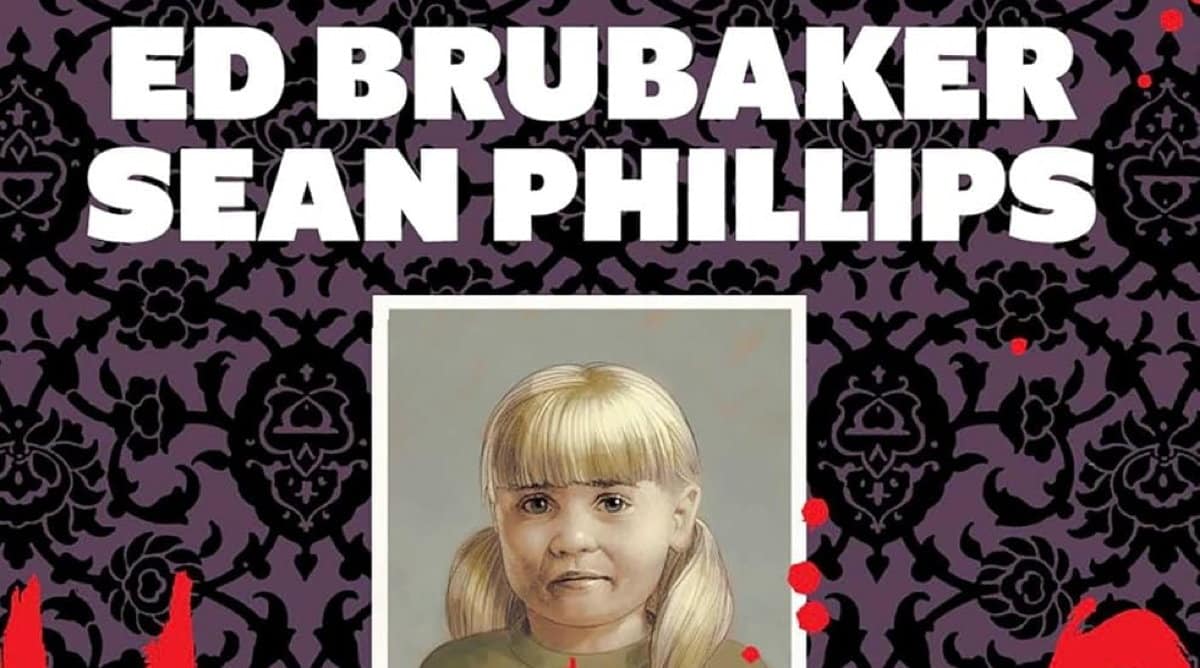It’s an inherently appealing combo: Ed Brubaker, one of the most popular purveyors of crime comics, co-creating imminently engaging series like Criminal, The Fade Out, Fatale among others, teaming with neon-noir maestro Nicolas Winding Refn, most known for directing the indie action masterpiece Drive. When the collaboration was announced, Brubaker had recently stepped into the world of television, working on the first season of HBO’s Westworld (and producing one of the best hours of that set of episodes), while Refn has been a bit on the wane after his sudden surge of popularity. His Only God Forgives was unfairly savaged – a film I remain a strong proponent of – even to the point that its creation became the subject of its own documentary. His most recent feature, The Neon Demon found a bit of a cult audience, but the Danish filmmaker has yet to really hit the same level of acclaim as was foundered in the story of his Scorpion-jacketed hero. And so, two different flavors, the Dashiell Hammett/Jim Thompson/Carlos Sampayo & Jose Munoz-inspired Brubaker and the Kenneth Anger/Nicolas Roeg/David Cronenberg worshipping Refn, combined for the upcoming Amazon streaming series Too Old To Die Young.
I don’t actually know how I feel about it.
Some of that comes down to circumstance. Instead of starting at the first episode, critics received the fourth and fifth episodes (entitled “North of Hollywood” and “West of Hell” respectively) of the entire ten episode count, the same two episodes that debuted at the Cannes Film Festival to varied notices. The idea behind this being that one could conceivably watch the series in any order you’d like, but I don’t know if that really works in practice. One of the episodes I watched stands alone quite well, but the other feels like you’re being dropped right into the middle of things. Unfortunately, the latter was the first hour I watched, which didn’t exactly set me on the right foot.
The first scene begins with Miles Teller‘s Martin staring out a motel window for a long period, only to turn around and watch Nell Tiger Free‘s Janey undress to the atonal scoring of Cliff Martinez. This eventually ends with with slowly crawling toward her feet, caressing them. If nothing else, you quickly realize what kind of series is being crafted, and if you were one of that slim margin of fans that really digs into Refn’s recent material, this may very well be for you. The basic gist of the story centers on Teller’s hero, another silent protagonist in what seems to be Refn’s favorite mold since Valhalla Rising, a cop who suffers from PTSD and who takes kill-orders from a fellow support group member named Viggo (John Hawkes). They don’t just kill anyone, though. They kill pedophiles, and Viggo gets his intel from Diana (Jena Malone), who identifies the targets through seeing stones. Like I said, you know what kind of show you’re in for right away. Of course, Martin has his own entanglements, as Janey is a high school senior on the verge of going to college, and her father (William Baldwin) is a high powered businessman, who seems to approve of and maybe encourage their relationship? It’s not totally clear.
It’s a pulpy premise, and on paper sounds like it could be something worth taking some time and unraveling its layers. But “North of Hollywood” is excruciatingly paced, with dialogue patterned in a way that’s very difficult to get on board with. Every statement and response feels like it takes a lifetime to come across to the viewer, with pregnant pauses aplenty, at times playing even like a parody of the kind of movie Refn would make, and long silent stretches making up much of the running time. It’s odd that something Brubaker-written, a master of internal dialogue especially, would be so vacant of these sorts of character building moments, but I dare not hazard a guess at the creative process at work here. Sometimes that stripped down approach works fabulously (see: Drive, where Refn and Ryan Gosling actively struck out much of its original screenplay to get down to its barest essentials). But here, some of that richer touch could have gone a long way toward a greater understanding of the protagonist. Some of the more detailed exchanges we get, such as when Viggo details his vision of the end-times, just add to the ponderous nature of it all.
The episode does occasionally spring to life, such as when Hart Bochner‘s Lieutenant pops up in a department-wide debrief that basically amounts to him leading a chant for fascism and playing a ukulele, singing a song about Jesus and Mother Mary. I don’t know what it has to do with anything else, surely some level of commentary on the police state, but I couldn’t look away either. Those kinds of odd strains of David Lynch-like absurdity and humor are rare here, but so very welcome. Also Hideo Kojima (yep, that one) cuts a debtor’s finger off with a sword.
After watching the first hour, it was tough to muster the nerve to continue. Could I take another hour of Teller staring off into the distance just for the occasional Martinez-imbued thrill? I’m really glad I did, because “West of Hell”, while still very clearly functioning in the minimalist vein of the previous offering, is a much more exciting affair. It finds Martin hunting a pair of child pornographers played by James Urbaniak and Brad Hunt through the desert, into a vibrantly lit casino with one of my favorite shots of the series thus far, and then a wonderfully spare sequence that has Martin sharing drinks with these brothers and discussing their mutual appreciation for pornography. It builds to an exhilarating conflict of car chase and gunplay, with Refn and cinematographer Darius Khondji taking incredible advantage of the various spaces at play here, with especially beautifully textural lighting in the interior shots and gorgeously open vistas in the episode’s back third. It’s a gripping hour of television, again, provided you can settle in and pay full attention to what Refn and Brubaker are doing here. Granted, one could have maybe done without one of the brothers spending a significant amount of time painting a young woman’s toes, but it’s a marked improvement regardless. Urbaniak is a real pleasure to watch too
So the question boils down to this: do I actually like Too Old To Die Young? I can’t say I fully know the answer to that yet. Had you asked me after “North of Hollywood”, I would have answered quite negatively, but with “West of Hell” and its much more concentrated storytelling, I’m more intrigued by what may be to come, as well as what’s preceded it. Each episode is being sold as its own film, with running times ranging from 60 to 90 minutes. If the tonal variance on offer between these two examples is the norm, that ratchets my own interest up significantly. I can’t imagine this has a particularly wide audience, but the Refn die-hards should find lots to enjoy, and those curious about Brubaker’s first big television creation – a generally cinemaphile friendly lot – ought to at least dip their toes in cautiously. I myself need to at least see how the whole thing kicks off with the very first episode. Maybe I’ll figure out what’s going on with that ukulele.
Too Old To Die Young debuts on Amazon Prime on June 14th









